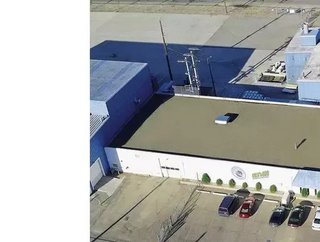Itronics successfully tests manganese recovery process

Itronics - a Nevada-based emerging cleantech materials growth company that manufacturers fertilisers and produces silver - has successfully tested two proprietary processes that recover manganese, with one process recovering manganese, potassium and zinc from paste produced by processing non-rechargeable alkaline batteries. The second recovers manganese via the company’s Rock Kleen Technology.
Manganese, one of the four most important industrial metals and widely used by the steel industry, has been designated by the US Federal Government as a "critical mineral." It is a major component of non-rechargeable alkaline batteries, one of the largest battery categories sold globally.
The use of manganese in EV batteries is increasing as EV battery technology is shifting to use of more nickel and manganese in battery formulations. But according to the US Department of Interior, there is no mine production of manganese in the United States. As such, Itronics is using its Rock Kleen Technology to test metal recoverability from mine tailings obtained from a former silver mine in western Nevada that has a high manganese content.
In a statement, Itronics says that its Rock Kleen process recovers silver, manganese, zinc, copper, lead and nickel. The company says that it has calculated – based on laboratory test results – that if a Rock Kleen tailings process is put into commercial production, the former mine site would become the only primary manganese producer in the United States.
Itronics adds that it has also tested non-rechargeable alkaline battery paste recovered by a large domestic battery recycling company to determine if it could use one of its hydrometallurgical processes to solubilize the manganese, potassium, and zinc contained in the paste. This testing was successful, and Itronics was able to produce material useable in two of its fertilisers, it says.
"We believe that the chemistry of the two recovery processes would lend itself to electrochemical recovery of the manganese, zinc, and other metals. At this time electrochemical recovery has been tested for zinc and copper,” says Dr John Whitney, Itronics president.
“Itronics has been reviewing procedures for electrochemical recovery of manganese and plans to move this technology forward when it is appropriate to do so and has acquired electro-winning equipment needed to do that.
"Because of the two described proprietary technologies, Itronics is positioned to become a domestic manganese producer on a large scale to satisfy domestic demand. The actual manganese products have not yet been defined, except for use in the Company's GOLD'n GRO Multi-Nutrient Fertilisers. However, the Company believes that it will be able to produce chemical manganese products as well as electrochemical products," he adds.
Itronics’ research and development plant is located in Reno, about 40 miles west of the Tesla giga-factory. Its planned cleantech materials campus, which will be located approximately 40 miles south of the Tesla factory, would be the location where the manganese products would be produced.
Panasonic is operating one of the world's largest EV battery factories at the Tesla location. However, Tesla and other companies have announced that EV battery technology is shifting to use of nickel-manganese batteries. Itronics is positioned and located to become a Nevada-0based supplier of manganese products for battery manufacturing as its manganese recovery technologies are advanced, the company states.
A long-term objective for Itronics is to become a leading producer of high purity metals, including the U.S. critical metals manganese and tin, using the Company's breakthrough hydrometallurgy, pyrometallurgy, and electrochemical technologies. ‘Additionally, Itronics is strategically positioned with its portfolio of "Zero Waste Energy Saving Technologies" to help solve the recently declared emergency need for domestic production of Critical Minerals from materials located at mine sites,’ the statement continues.
The Company's growth forecast centers upon its 10-year business plan designed to integrate its Zero Waste Energy Saving Technologies and to grow annual sales from $2 million in 2019, to $113 million in 2025.






